The Ambassador of the French Republic to the Republic of Indonesia, Timor Leste and ASEAN, Olivier Chambard, emphasized that there is a difference between the majority of French Muslims who are peaceful and moderate, and a militant minority group that is separatist, who ignore the law and are hostile to the values of the French Republic.
He also explained the intent of French President Emmanuel Macron’s speech on 2 October 2020.
Furthermore, Ambassador Chambard explained that the bilateral relations between France and Indonesia will continue to be strengthened and enhanced by optimizing the potential for existing cooperation.
It was conveyed by Ambassador Chambard during a special interview with the Mi’raj News Agency (MINA) Reporters Team at the French Embassy in Jakarta, Wednesday, November 18.
Also Read: Strengthening Bridges of Friendship and Cooperation between Indonesia and African Countries
On that auspicious occasion, the MINA team consisted of Chief of Arabic Desk Rifa Berliana Arifin, Chief of Englih Desk Sajadi, Head of Coverage Rana Setiawan, and photographer Abdullah.
France and Indonesia have had friendly relations and cooperation for a long time. This year, France and Indonesia celebrate the 70th anniversary of diplomatic relations between the two countries. Therefore, this year is very meaningful for the bilateral partnership between the two countries.
On November 20, 2019, Ambassador Chambard officially began his assignment at the French Embassy in Indonesia to replace the previous French Ambassador, Jean-Charles Berthonnet.
Previously, Ambassador Chambard also served as Deputy Ambassador of the Republic of France to the Republic of Indonesia in 1997-2000.
The following is the full interview excerpt:
MINA: Could you describe the bilateral development between Indonesia and France? Which sectors have the two countries potential to improve?
Ambassador Chambard: France and Indonesia have established friendly and cooperative relations for a long time. Our two countries are equally committed to promoting democratic values, human rights, tolerance and pluralism in the midst of society. Both also share the same aspirations about a world order that is more just, more transparent, more democratic and about a more solid multilateral system.
This special relationship has been part of the strategic partnership since 2011. The Strategic Partnership focuses on consolidating bilateral cooperation in the fields of politics and security, economy, development, education and culture, as well as expanding exchanges between civil society. It is also an important element of developing relations between France and the Association of Southeast Asian Nations (ASEAN).
Also Read: Ambassador: Climate Change is the Main Cause of Floods in Pakistan
These bilateral exchanges are held regularly, within the framework of various international meetings and forums that are attended by our two countries: UN, G7, G20. In 2015, President Joko Widodo participated in the Paris Climate Change Summit (COP21) which resulted in the first universal agreement on climate and global warming.
President of the Republic France Hollande paid a state visit to Indonesia in March 2017. The trip resulted in the signing of around thirty agreements and launching two partnerships in the maritime sector and the creative and digital economy.
Since then, the President of the Republic of Indonesia, Joko Widodo met with President Emmanuel Macron on the sidelines of the G20 Summit (in Hamburg, 2017; and in Osaka, 2019).
In 2020, France and Indonesia celebrate the 70th anniversary of their diplomatic relations. Therefore, this year is very meaningful for the bilateral partnership between the two countries.
France and Indonesia believe that global challenges such as climate change, eradicating terrorism, radicalism and extremism, as well as disarmament can be carried out effectively, through a multilateral approach.
In this context, our two countries recognize the greater role played by the United Nations (UN), in maintaining international peace and security, and for advancing human rights and freedoms.
They support each other in elections in various international organizations (eg the Human Rights Council).
Climate change is a key area of cooperation between our two countries. Since the Paris Climate Agreement, France has had regular dialogues with Indonesia, discussing natural risk management, “green” technology and sustainable agriculture, which is realized through seminars and joint research projects.
Also Read: AMBASSADOR TALKS/Russian Ambassador: Attack on Ukraine Tough Choice to Make
Finally, France and Indonesia are two Indo-Pacific countries. Like Indonesia, which is at a strategic meeting between the Indonesian Ocean and the Pacific Ocean, France is present in both oceans, with five regions and 1.5 million citizens. France is the second largest maritime power in the world after the United States.

Exclusive Interview Atmosphere of MINA News Agency with the French Ambassador to Indonesia.
MINA: How do you think about the harmony of the religious community in Indonesia?
Ambassador Chambard: Religious freedom is enshrined in the 1945 Constitution and Pancasila, the Indonesian state philosophy which officially recognizes six religions: Islam, Protestantism, Catholicism, Hinduism, Buddhism, and Confucianism. Indonesia’s model of tolerance and openness is often used as a role model, and rightly so, but I feel it is necessary to convey here that the Indonesian government is also faced with radical organizations that ignore the applicable law and oppose the basic values of the Republic of Indonesia, and become a threat to unity and national unity. Indonesia also faces threats from terrorist groups.
MINA: What is President Emmanuel Macron’s statement that is considered offensive to Muslims?
Also Read: Palestinian Administrative Detainees Boycott Occupation Courts for 40th Consecutive Day
Ambassador Chambard: The President of the French Republic delivers a speech on 2 October outlining a strategy to fight separatism. I will summarize the outline.
Reaffirmation of “laicité” (French secularism) as a guarantee of freedom of conscience (to believe or not to believe in God) and freedom of religion.
The President of the French Republic reminded the importance of laicité, the glue of the French Republic, which is the foundation of religious freedom, which enables each religious community to practice worship, and maintains the neutrality of the State towards all religions. He emphasized that laicité by no means means the elimination of religion in the public sphere.
The President clearly stated that he would not tolerate any leveling.
Also Read: Interview with Pakistani Ambassador to Indonesia: Kashmir Solidarity Day
He noted that there is a difference between the peaceful and moderate majority of French Muslims, and a militant minority that is separatist in nature, who ignore the law and are hostile to the values of the French Republic. This last group is also a burden on the majority of French Muslims.
The main pillars of strategy
The government’s strategic objective is to first strengthen the laicité framework, to protect freedom of religion and freedom of worship, from religious radicalism and indoctrination.
This strategy also includes structuring Islam in France, in order to find its rightful place in French society and to become a partner of the French Republic.
Also Read: Khaled Meshaal to MINA: Indonesia is at the Forefront of Those Who Support Palestinian Cause
Finally, this strategy will also continue the efforts already made to fight social division and discrimination, on which radicalism can flourish, through increased actions in favor of equality.
MINA: Is it true that President Macron allowed Charlie Hebdo to republish caricatures of the Prophet Muhammad under the pretext of freedom of expression?
Ambassador Chambard: In France, not a single newspaper needs a permit to be published. There, the press is completely free. Thus, neither the President nor the government has the right or authority to censor or prohibit the publication of newspapers.
France defends and protects freedom of expression, as long as it does not encourage hatred or violence, and does not promote terrorism. As such, the restrictions on freedom of opinion or expression in French law do not include criticism of religion or religious symbols.
Also Read: Ambassador: Many Opportunities on Relationship Between Indonesia-UAE
Defending freedom of expression in France does not mean that everything is lawful to exist to protect every citizen. There is a clear distinction between the space given to debate and question any system of thought, religion or belief, which includes freedom to criticize including through humor on the one hand, and incitement to religious hatred on the other. Only the latter is fought under applicable French law.
As such, in France any media has the right to be published, in accordance with applicable law and completely independent. Only the court has the power to determine if the framework for freedom of expression provided by law is complied with or not, in accordance with the articles of the law.
However, standing up for freedom of expression does not mean that we ignore the reactions it generates in the world. Differences in sensitivity do exist. However, the limit that cannot be crossed is violence, which is not and will never be accepted.
When a newspaper in France says something, it is not the position of the government that is saying. The cartoon is not published by the official state media and it is not the French government that produced the cartoon. The question is not whether France, and its representatives,m
Also Read: Exclusive Interview with Indonesian Ambassador to Afghanistan
President Macron, to caricature this or support it, but whether the President agrees to abolish that right: the answer is no, because it is the right of the French people, which is written in the French Constitution. France as a sovereign country has its own laws.
MINA: Several Muslim countries have decided to boycott French products. How has your country’s government responded and did it affect your country’s trade in an impactful way?
Ambassador Chambard: In an opinion column published by one of your media colleagues, I appeal to the Indonesian people not to boycott French products. The boycott would not only harm French economic interests but also Indonesian economic interests.
Around 50 thousand Indonesian employees are employed by 200 French companies in Indonesia could be affected by the boycott movement.
Overall, French investment in Indonesia was ranked 19th, and European countries ranked 5th, after the Netherlands, Britain, Switzerland and Germany.
At the implementation of the Indonesia Infrastructure Investment Forum (lIF) organized by the Indonesian Embassy in Paris and the French Entrepreneurs Association MEDEF International, Indonesia submitted 41 large infrastructure projects to French investors with a value of up to 440 billion USD in various sectors, including the transportation sector, electricity, logistics and environmentally friendly urban development.
These are the sectors that can be developed between our two countries, where French expertise is not limited to one project. The areas of academic and vocational training as well as technology transfer are very important in our relationship with Indonesia.
In addition, a boycott could affect Indonesia’s good image as a destination country for foreign investment. The Indonesian government is currently carrying out reforms aimed at facilitating domestic trade activities in order to increase investment, including through the Job Creation Law.
In general, these calls for a boycott overturned the position defended by France to promote freedom of conscience, freedom of expression, freedom of religion and the rejection of calls for hatred.
The call also distorted and used the statements of the President of the French Republic to their political interests. Yet, this statement is a call to fight against radical Islamism and the war will be fought alongside French Muslims who are an integral part of French society, history and the Republic.
MINA: In this past week, France faced two terrorism cases in Paris and Nice. How does the government responded to this? Does the government support their previous claims that they are linked to radical Muslims?
Ambassador Chambard: Since the last few years, France, like Indonesia, has been fighting terrorism firmly. Acts of terrorism in France have claimed more than 300 lives, for both French and foreign nationals living or visiting French territory.
Terrorism attacks in the name of Islam are a disaster for Muslim communities around the world. If we look at current statistics, around the world in the last 40 years, more than 80% of the victims of terrorism are Muslims.
There seems to be a misunderstanding in recent weeks due to translation problems regarding the term radical Islamism in France. M What does that mean? It is radical extremists who hijack religions and commit violence in Islam.
And some media have interpreted this resistance led by President Macron as a form of hostility towards Islam. On the contrary, France is a country that has millions of citizens who are Muslim.
We are not against them at all. They are full citizens who want to live in peace and France has friendly countries around the world whose majority religion is Islam, including Indonesia.
But today, in the name of Islam and by pirating its teachings, extremists are using violence to do the worst. (W / R1 / RA-1 / RE1 / R9 / P1)
Mi’raj News Agency (MINA)






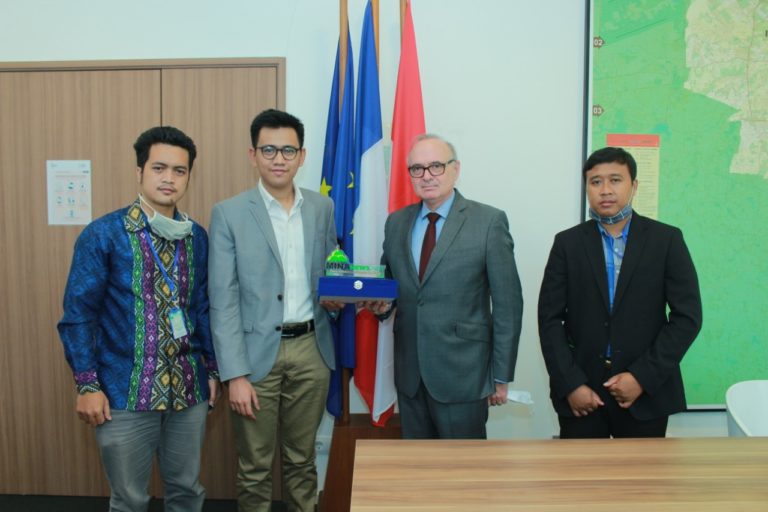


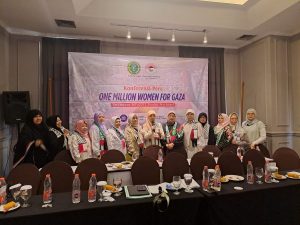



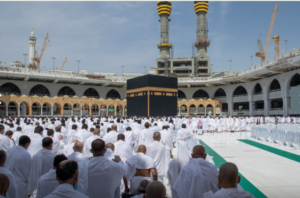
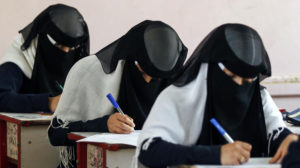
![MUI Chairman for Foreign Relations and International Cooperation, Sudarnoto Abdul Hakim (center) at the One Million Women for Gaza Press Conference entitled "Women Boycott Pro-Israel Products" held at the Swiss-Belinn Cawang Hotel, East Jakarta, Thursday (3/7/2025). [Photo: Arina/MINA]](https://en.minanews.net/wp-content/uploads/2025/07/20250703_144042-scaled-1-300x225.jpg)
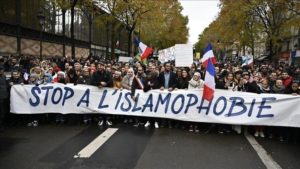
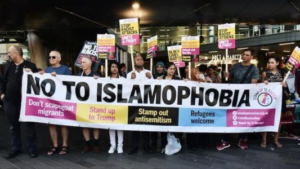
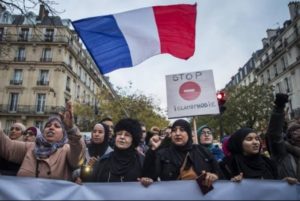

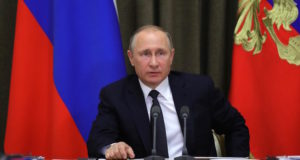









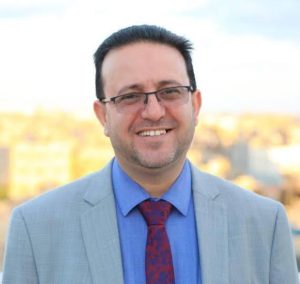




 Mina Indonesia
Mina Indonesia Mina Arabic
Mina Arabic